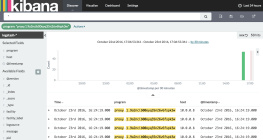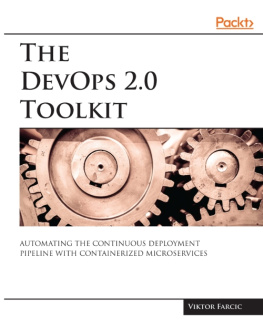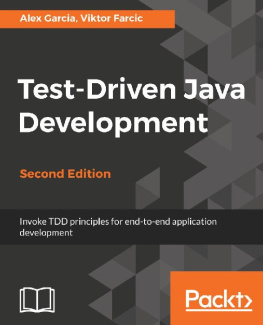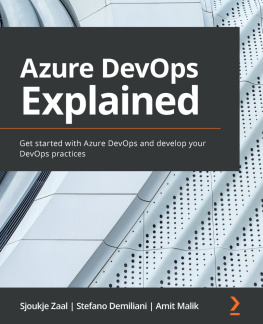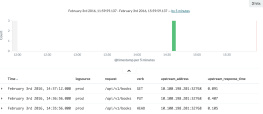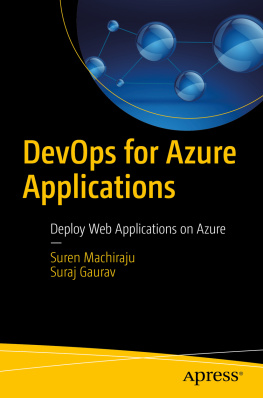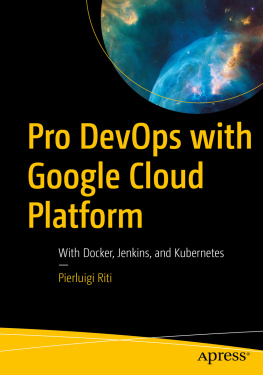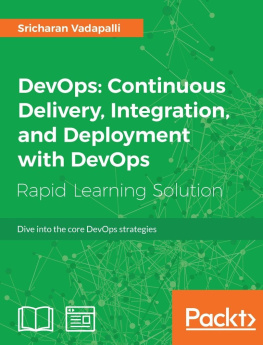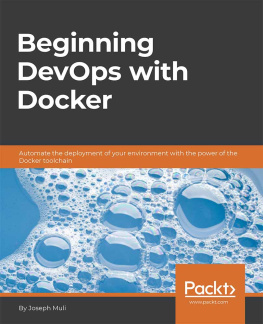
Title Page
The DevOps 2.1 ToolKit: Docker Swarm
Building, testing, deploying, and monitoring services inside Docker Swarm clusters
Viktor Farcic

BIRMINGHAM - MUMBAI
Copyright
The DevOps 2.1 Toolkit: Docker Swarm
Copyright 2017 Viktor Farcic
All rights reserved. No part of this book may be reproduced, stored in a retrieval system, or transmitted in any form or by any means, without the prior written permission of the publisher, except in the case of brief quotations embedded in critical articles or reviews.
Every effort has been made in the preparation of this book to ensure the accuracy of the information presented. However, the information contained in this book is sold without warranty, either express or implied. Neither the author, nor Packt Publishing, and its dealers and distributors will be held liable for any damages caused or alleged to be caused directly or indirectly by this book.
Packt Publishing has endeavored to provide trademark information about all of the companies and products mentioned in this book by the appropriate use of capitals. However, Packt Publishing cannot guarantee the accuracy of this information.
First published: May 2017
Production reference: 1020517
Published by Packt Publishing Ltd.
Livery Place
35 Livery Street
Birmingham
B3 2PB, UK.
ISBN 978-1-78728-970-3
www.packtpub.com
Credits
Author Viktor Farcic | Acquisition Editor Frank Pohlmann |
Technical Editors Joel Wilfred D'souza Devesh Chugh | Production Coordinator
Shraddha Falebhai |
Indexer
Francy Puthiry |
About the Author
Viktor Farcic is a senior consultant at CloudBees (https://www.cloudbees.com/), a member of the Docker Captains (https://www.docker.com/community/docker-captains) group, and an author.
He codes using a plethora of languages starting with Pascal (yes, he is old), Basic (before it got the Visual prefix), ASP (before it got the .NET suffix), C, C++, Perl, Python, ASP.NET, Visual Basic, C#, JavaScript, Java, Scala, and so on. He never worked with Fortran. His current favorite is Go.
Viktor's big passions are Microservices, Continuous Deployment, and Test-Driven Development (TDD).
He often speaks at community gatherings and conferences. Viktor wrote Test-Driven Java Development by Packt Publishing, and The DevOps 2.0 Toolkit . His random thoughts and tutorials can be found in his blog TechnologyConversations.com (https://technologyconversations.com/) .
www.PacktPub.com
For support files and downloads related to your book, please visit www.PacktPub.com .
Did you know that Packt offers eBook versions of every book published, with PDF and ePub files available? You can upgrade to the eBook version at www.PacktPub.com and as a print book customer, you are entitled to a discount on the eBook copy. Get in touch with us at service@packtpub.com for more details.
At www.PacktPub.com , you can also read a collection of free technical articles, sign up for a range of free newsletters and receive exclusive discounts and offers on Packt books and eBooks.

https://www.packtpub.com/mapt
Get the most in-demand software skills with Mapt. Mapt gives you full access to all Packt books and video courses, as well as industry-leading tools to help you plan your personal development and advance your career.
Why subscribe?
- Fully searchable across every book published by Packt
- Copy and paste, print, and bookmark content
- On demand and accessible via a web browser
Customer Feedback
Thanks for purchasing this Packt book. At Packt, quality is at the heart of our editorial
process.
If you'd like to join our team of regular reviewers, you can e-mail us at
customerreviews@packtpub.com. We award our regular reviewers with free eBooks and
videos in exchange for their valuable feedback. Help us be relentless in improving our
products!
Preface
At the beginning of 2016, I published The DevOps 2.0 Toolkit (https://www.amazon.com/dp/B01BJ4V66M). It took me a long time to finish it. Much longer than I imagined.
I started by writing blog posts in TechnologyConversations.com (https://technologyconversations.com/). They become popular and I received a lot of feedback. Through them, I clarified the idea behind the book. The goal was to provide a guide for those who want to implement DevOps practices and tools. At the same time, I did not want to write a material usable to any situation. I wanted to concentrate only on people that truly want to implement the latest and greatest practices. I hoped to make it go beyond the "traditional" DevOps. I wished to show that the DevOps movement matured and evolved over the years and that we needed a new name. A reset from the way DevOps is implemented in some organizations. Hence the name, The DevOps 2.0 Toolkit (https://www.amazon.com/dp/B01BJ4V66M)
As any author will tell you, technical books based mostly on hands-on material do not have a long time span. Technology changes ever so quickly and we can expect tools and practices that are valid today to become obsolete a couple of years afterward. I expected The DevOps 2.0 Toolkit to be a reference for two to three years (not more). After all, how much can things change in one year? Well, Docker proved me wrong. A lot changed in only six months since I made the book public. The new Swarm was released. It is now part of Docker Engine v1.12+. Service discovery is bundled inside it. Networking was greatly improved with load balancing and routing mesh. The list can go on for a while. The release 1.12 is, in my opinion, the most significant release since the first version that went public.
I remember the days I spent together with Docker engineers in Seattle during DockerCon 2016. Instead of attending the public sessions, I spent four days with them going through the features that will be released in version 1.12 and the roadmap beyond it. I felt I understood all the technical concepts and features behind them. However, a week later, when I went back home and started "playing" with the new Docker Swarm Mode, I realized that my brain was still wired to the way the things were working before. Too many things changed. Too many new possibilities emerged. It took a couple of weeks until my brain reset. Only then I felt I truly understood the scope of changes they introduced in a single release. It was massive.
In parallel with my discovery of the Swarm Mode, I continued receiving emails from The DevOps 2.0 Toolkit (https://www.amazon.com/dp/B01BJ4V66M) readers. They wanted more. They wanted me to cover new topics as well as to go deeper into those already explored. One particular request was repeated over and over. "I want you to go deeper into clustering." Readers wanted to know in more detail how to operate a cluster and how to combine it with continuous deployment. They requested that I explore alternative methods for zero-downtime deployments, how to monitor the system more efficiently, how to get closer to self-healing systems, and so on. The range of topics they wanted me to cover was massive, and they wanted it as soon as possible.
Next page
